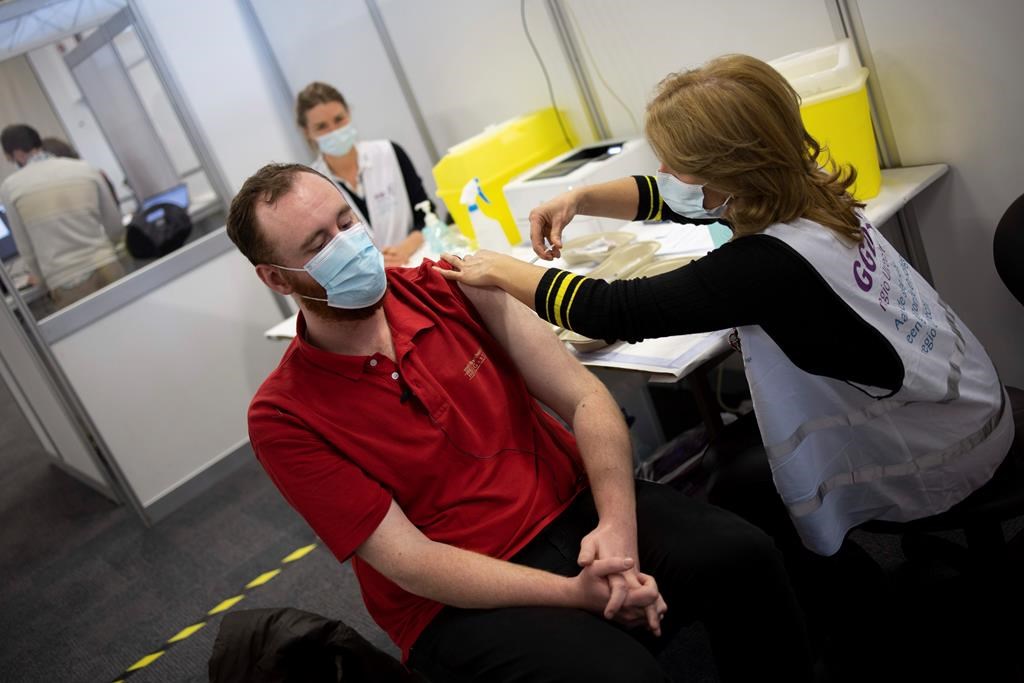EDMONTON (660 NEWS) — As Alberta set another single-day record for COVID-19 deaths in less than a week, the province’s top doctor says this is a reminder of the importance of getting vaccines out as quickly as possible.
The 38 deaths reported Tuesday surpassed the previous record of 31 recorded on Saturday.
“Today is a difficult day where we announced the highest number of deaths reported in a single day, well over 30, and it’s exactly for that reason that we want to make sure that every Albertan who is at risk gets the vaccine as soon as possible,” Dr. Deena Hinshaw, Chief Medical Officer of Health, said during Tuesday’s COVID-19 briefing.
The province had previously been booking the second dose three to four weeks after the first initial shot, but that is now being extended to 42 days.
Hinshaw said this is to ensure as many Albertans as possible get the protection of the first dose.
Pfizer and Moderna studies have shown the effectiveness of the first shot is approximately 90 per cent two weeks after being administered. What’s not clear is how long that single-dose protection will last without the second dose.
Latest on the vaccine rollout: pic.twitter.com/c5C1dr5oUF
— Jeff Slack (@Jeffslack660) January 12, 2021
“We know that in those studies there was a range of intervals between the first and second dose that did go up to 42 days,” Hinshaw said.
“We don’t know for sure how long the first dose protection will last, but given that some people in that study did have that 42-day interval, given that the National Advisory Committee on Immunization in Canada has indicated that this interval could be considered when vaccine supplies are in short numbers and high community transmission is taking place, and the World Health Organization has also made that statement, we felt that the responsible thing to do to prevent as many deaths as possible was to be able to provide that first dose to as many people as possible, while still planning for that second dose.”
Being able to offer the vaccine to more people is weighed against that extension of interval so the province can broaden that protection as quickly as possible, she said.
“If we were to save half of every vaccine shipment for those who need a second dose, we would be dramatically reducing the total number of Albertans who could benefit from the early protection,” Hinshaw said.
Every individual who is eligible for the vaccine will go through an informed consent process where they will be able to choose to accept the vaccine or not.
Any appointments that were previously made will be honoured and all residents of long-term care and designated supportive living facilities will receive their second dose at the three to four week interval.







